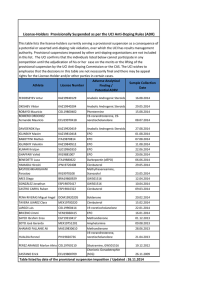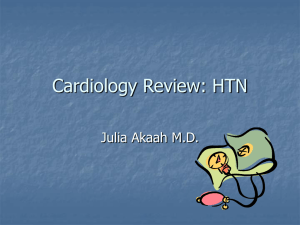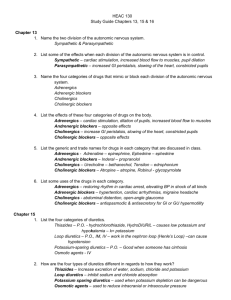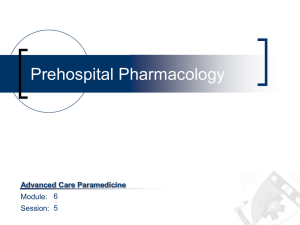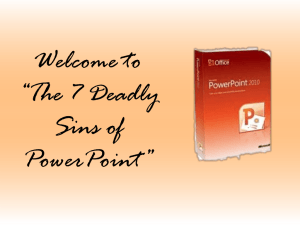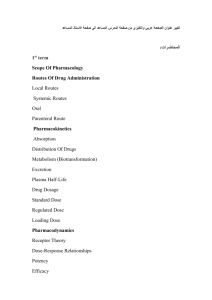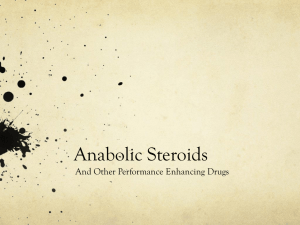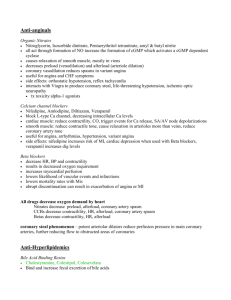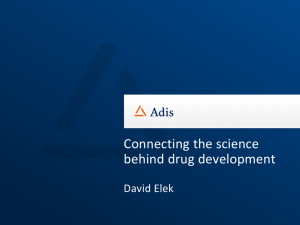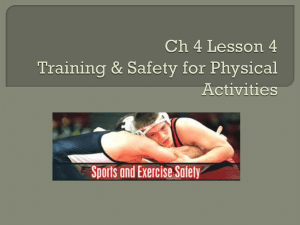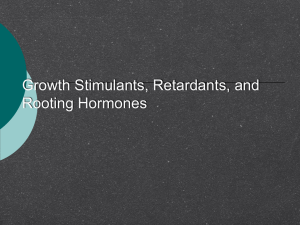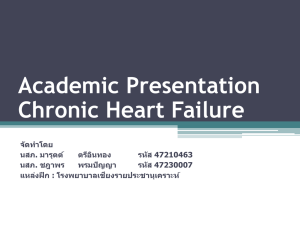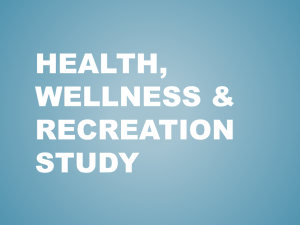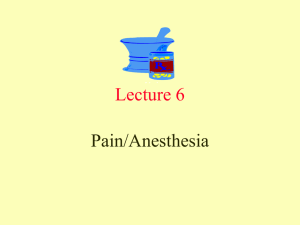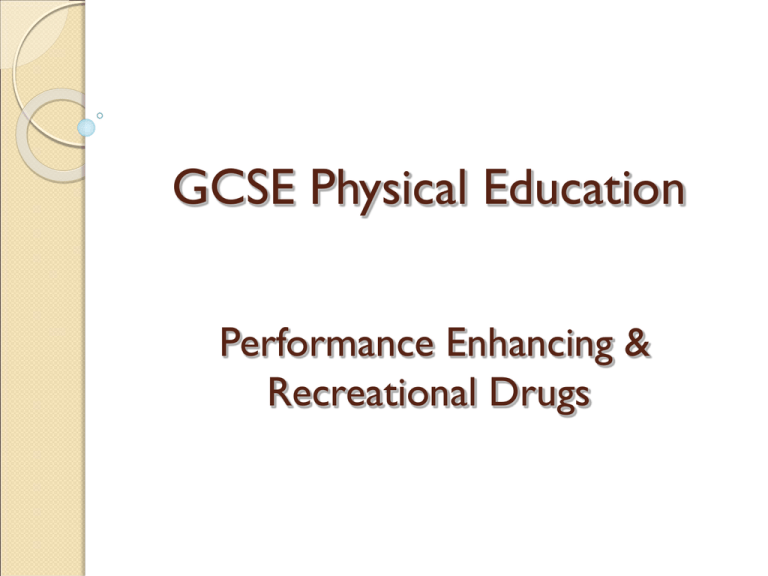
GCSE Physical Education
Performance Enhancing &
Recreational Drugs
Learning Objectives
By the end of this lesson pupils should:
Know about the different categories of drugs
(performance-enhancing and recreational)
Be able to explain the impact of
performance-enhancing drugs on wellbeing
and performance
Be able to explain the effects of smoking
and alcohol on general health
What is a drug?
A drug is a substance that can be taken in
a variety of ways to produce expected and
welcome physical and or psychological effects on
the person taking it
Drugs may also cause some effects that are both
unpleasant and unwanted. These are known as
side-effects.
There are two main categories of drugs:
- Performance-enhancing
- Recreational
Performance-Enhancing Drugs
Performance-Enhancing Drugs
Performance enhancing drugs can enhance a person’s
performance in some way, either in physical activity and
training, or daily life. Performance-enhancing drugs
include:
Anabolic steroids
Beta blockers
Diuretics
Narcotic analgesics
Stimulants
Peptide Hormones (erythropoietin/EPO)
Anabolic Steroids
Anabolic Steroids
Anabolic Steroids
Drugs that mimic the male sex hormone
testosterone and promote bone and muscle
growth
The most commonly used to enhance
performance in sport, because they produce
improvement quickly
They increase muscle mass and develop
bone growth, therefore increasing strength
while at the same time allowing the athlete to
train hard and recover quicker
Anabolic Steroids
Steroids increase aggression and some
athletes take it mainly for this reason. The
other side effects for anabolic steroids include:
- Deepening of voice and growth of facial hair
- Increased risk of heart attacks and strokes
- High blood pressure
- Liver disease
- Increased risk of muscle injury
- Infertility in women
- Death
Beta Blockers
Beta Blockers
Beta Blockers
Drugs that are used to control the heart
rate and have a calming and relaxing effect
Commonly prescribed for people with
heart problems as they maintain a low
heart rate and lower blood pressure. As a
result stress levels and anxiety are reduced
Used in target sports where steadiness and
precision are required, because they reduce
the heart rate
Beta Blockers
Beta Blockers can reduce a fit person’s
heart rate to a dangerous level. The
other side-effects of beta blockers
include:
- Nausea and diarrhoea
- Tiredness
- Depression
- Insomnia and nightmares
Diuretics
Diuretics
Diuretics
Drugs that elevate the rate of urine reduction
Certain foods are natural diuretics, but some
synthetic diuretics are banned
Diuretics increase the amount of urine
produced and increase kidney function,
therefore speeding up the elimination of fluid
from the body
This can help performers who need to lose
weight, such as boxers and jockeys.
Diuretics
Diuretics are also taken to reduce the
concentration of other banned
substances in the urine. The side effects
of diuretics include:
- Dehydration
- Dizziness and nausea
- Muscle cramps
- Kidney failure
Narcotic Analgesics
Narcotic Analgesics
Narcotic Analgesics
Drugs that can be used to relieve pain
These are used more commonly in
combat sports as well as used to return to
sport more quickly after injury
These drugs act by depressing the central
nervous system and give relief from pain
injuries
However by allowing an injured player to take
part, can increase the risk of severe injury
Narcotic Analgesics
As well as heightening the risk of getting
longer lasting injuries, the side effects of
narcotic analgesics include:
- Loss of concentration
- Loss of balance
- Loss of coordination
- Emotional effects, including
hallucinations
Stimulants
Stimulants
Stimulants
Stimulants
Drugs that have an effect on the central
nervous system, such as increased
mental and/or physical alertness
This group includes amphetamines,
ephedrine, and cocaine as well as
caffeine and nicotine
They increase alertness by stimulating
the CNS and help overcome tiredness
Stimulants
Stimulants are also used recreationally
as well as to enhance performance, the
side effects of stimulants include:
- Insomnia
- Irritability
- Irregular heart beat
- Increased heart rate
- High blood pressure
- Addiction
Peptide Hormones & EPO
Peptide Hormones & EPO
Peptide Hormones & EPO
Drugs that cause other hormones to be
produced
As well as increasing muscle growth
and helping with recovery, they
increase the number of red blood cells,
allow the body to carry extra oxygen
We produce hormones naturally, but
they can be synthetically produced by
drugs
Peptide Hormones & EPO
Human growth hormones (HGH)
increase muscle development, which
is why these are used by several
sports participants
HGH is thought to have fewer side-effects
than steroids
Erythropoietin (EPO) is used to treat people
with anaemia and it increases the production
of red blood cells and therefore the amount of
haemoglobin available to take up oxygen
Recreational Drugs
Recreational Drugs
Most people use recreational drugs on a
regular basis. The obvious ones are caffeine,
nicotine and ethanol (alcohol)
Although these drugs are legal, they can still
have quite negative side effects such as:
- Addiction
- Stained teeth and gum disease
- Lung cancer
- Heart problems
- Contribution to death
Smoking & Nicotine
Smoking & Nicotine
Smoking damages the cardiovascular system,
in particular the heart and the oxygencarrying capacity of the blood, and the blood
vessels
This has a negative effect on fitness,
especially aerobic fitness, and often results in
poorer performance
Nicotine, the drug contained in cigarettes, is a
stimulant which raises alertness and is highly
addictive
Alcohol
Alcohol
Alcohol is banned in sports such as shooting
and archery, where it may be used as a
sedative (have a calming effect)
It is also banned in sports where it is
considered a safety risk, such as motor
sports, because it slows down reaction times
and impairs judgement
The long-term effects of alcohol include a
form of liver damage known as cirrhosis
Learning Objectives (Revisited)
By the end of this lesson pupils should:
Know about the different categories of drugs
(performance-enhancing and recreational)
Be able to explain the impact of
performance-enhancing drugs on wellbeing
and performance
Be able to explain the effects of smoking
and alcohol on general health
Thank you
Any questions, please do not hesitate
to ask

